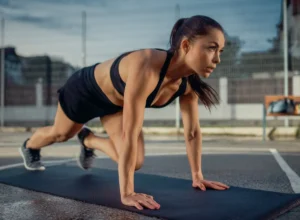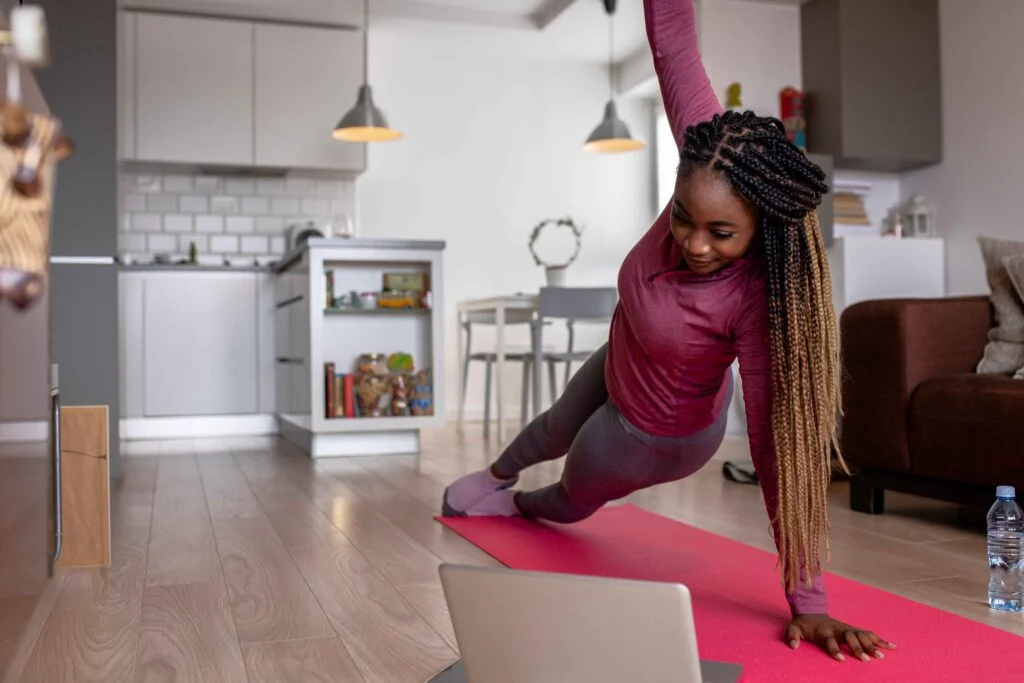Nigerian fitness centers are undergoing a powerful transformation. From Lagos to Abuja, there’s a growing trend among gymgoers favoring strength-based workouts—specifically, free-weight lifting and body-weight training. This shift reflects a deeper understanding of wellness, with many now prioritizing functional strength, mobility, and long-term health over quick aesthetic results.
Whether it’s lifting dumbbells or performing push-ups and squats, more Nigerians are moving away from conventional cardio machines and adopting strength routines that deliver lasting physical and mental benefits.
Health Consciousness Is on the Rise
With increasing awareness about lifestyle-related diseases such as obesity, diabetes, and high blood pressure, many Nigerians have started to take fitness more seriously. Strength training—especially resistance-based and calisthenics routines—has emerged as a leading way to prevent these conditions by boosting metabolism, building lean muscle mass, and improving insulin sensitivity.
In fact, doctors and fitness experts now frequently recommend weight-bearing exercises as part of a holistic approach to wellness.

Affordability and Accessibility Drive Growth
Unlike sophisticated machines or treadmills, free weights like dumbbells and kettlebells are relatively affordable and easy to incorporate into any space. Similarly, body-weight exercises like lunges, planks, and burpees require no equipment at all. This makes strength training especially appealing to middle- and low-income earners, students, and those in areas without access to well-equipped gyms.
Even in residential neighborhoods, people now turn everyday objects—like water containers, sandbags, or shopping baskets—into resistance tools to perform makeshift weight workouts.
Better Equipment and Functional Zones
Many Nigerian gyms are adapting to meet this growing demand for strength training. Facilities such as iFitness, The Zone, and Bodyline now provide dedicated zones for resistance work. These spaces feature squat racks, benches, barbells, kettlebells, resistance bands, and pull-up rigs.
Gym layouts have evolved too—favoring open floors that encourage movement, circuit workouts, and group-based calisthenics sessions.
Certified Personal Trainers Lead the Way
As more Nigerians adopt weight training, they’re also investing in expert guidance. The rise of certified strength coaches and personal trainers has helped correct misconceptions and poor form, both of which can lead to injury.
Trainers now customize workout plans combining body-weight movements and free weights, offering a balanced routine that targets strength, endurance, and flexibility. Popular training formats include strength-based HIIT (High-Intensity Interval Training), metabolic conditioning, and functional fitness programs.
Group Fitness and Outdoor Boot Camps Flourish
In cities like Lagos and Port Harcourt, community boot camps are thriving. These sessions often include body-weight exercises performed in circuits—such as push-ups, mountain climbers, jumping squats, and planks—alongside resistance band and dumbbell work.
These group workouts have become more than just exercise—they’re social gatherings, team-building activities, and motivational spaces that encourage consistency. Many Nigerians find them more engaging and affordable than private gym memberships.
Afrobeat and Local Music Enhance the Experience
Fitness trainers and gym DJs now curate high-energy playlists filled with Afrobeat, Afropop, and Nigerian hip-hop. The rhythm not only enhances performance but also roots the experience in local culture, making exercise feel less like a chore and more like a celebration.
Whether you’re bench pressing to Burna Boy or doing burpees to Davido, the music creates an electric atmosphere that energizes every rep.
Fitness Becomes a Social Identity
Strength training has become more than just a trend—it’s a part of youth culture and urban identity. Posting workout progress, PR (personal record) videos, and gym selfies has become common on Instagram, TikTok, and WhatsApp statuses.
Gym brands have even capitalized on this shift, offering branded workout gear, hosting fitness challenges, and building loyalty through community-led fitness competitions.
Strength Training Myths Persist
Despite growing popularity, myths about strength training continue to circulate. Some believe lifting weights causes women to become “too muscular” or that older adults shouldn’t do resistance exercises. Others still associate fitness primarily with weight loss rather than building functional strength.
Trainers, online influencers, and health experts are working to dispel these ideas by highlighting scientific evidence and sharing success stories of clients who’ve improved their health through strength-focused programs.
Access Is Still Uneven
While major cities boast modern gyms and boot camps, access in rural areas remains limited. Many smaller towns lack professional trainers or proper equipment. Additionally, income disparity still restricts some individuals from joining organized fitness programs.
However, digital platforms like YouTube and Instagram have started to fill this gap. Many Nigerians now follow at-home strength training routines online, proving that technology can help democratize fitness across the country.
The Road Ahead: A Strength-Driven Fitness Future
Nigeria’s fitness industry continues to expand, and strength training is at its core. The trend is not only transforming individual bodies but also reshaping perceptions about health, performance, and aging.
We’re likely to see further innovation in this space, including:
-
Mobile fitness apps offering body-weight and resistance programs
-
Affordable at-home gym kits with dumbbells, bands, and fitness mats
-
Government and NGO-driven wellness campaigns incorporating strength training
-
More outdoor fitness parks in urban spaces to promote free access to exercise
Conclusion
Free-weight and body-weight training have become defining elements of Nigeria’s fitness revolution. As more Nigerians discover the physical and mental benefits of strength-based routines, gyms and trainers are stepping up to support this demand with better equipment, smarter programming, and more inclusive environments.
Strength training is no longer reserved for bodybuilders—it’s for everyone: students, professionals, parents, and retirees. And in Nigeria, it’s fast becoming a way of life.







